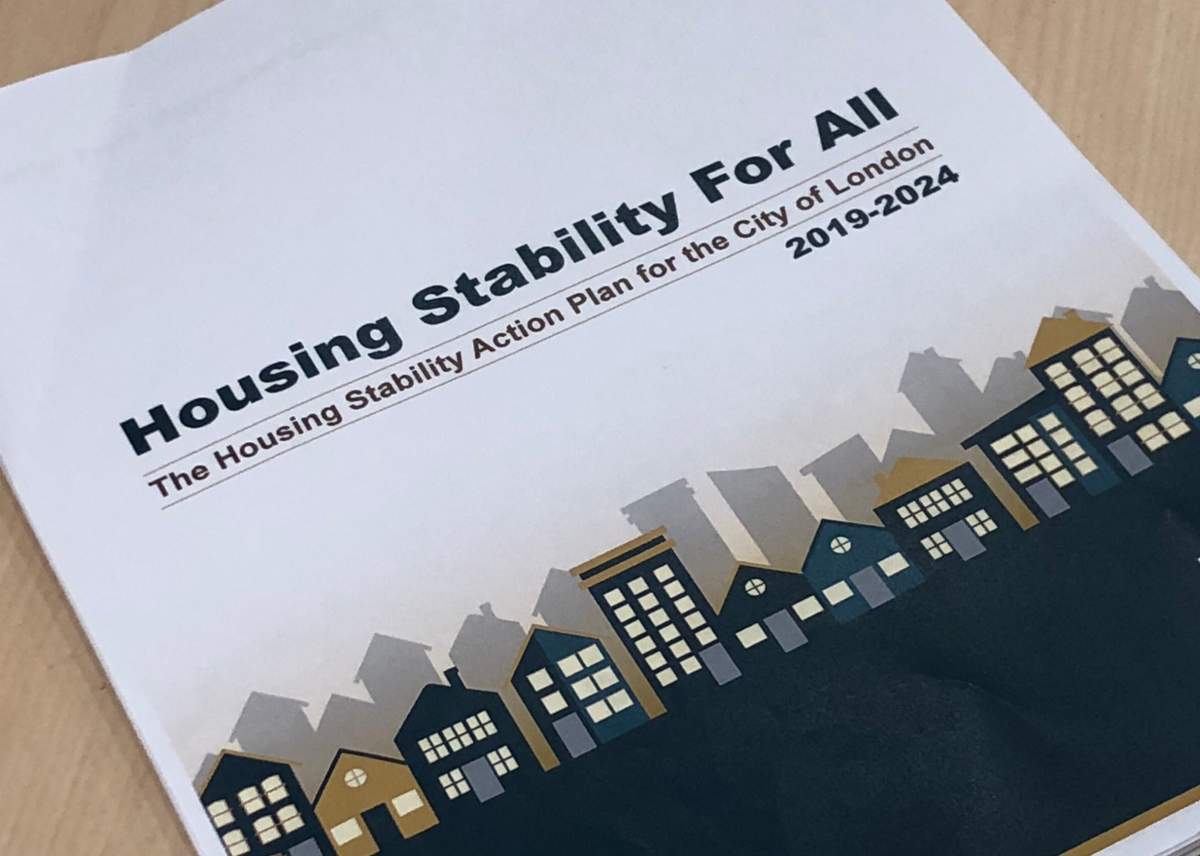With the number of affordable places to live in short supply, the City of London is revamping its plan for tackling homelessness and housing instability.

The two issues are combined in London’s five-year Housing Stability Action Plan.
The plan outlines the need for better ways and more options to help people access the supports they need to get and stay housed.
More people than ever before are experiencing homelessness in London, with 2,400 individuals and families accessing emergency shelters each year.
London’s manager of homeless prevention Craig Cooper said up until now, the focus has been on shelters, but moving forward the city is going to focus on moving away from short-term solutions.
“We want to get people out of the shelter, off the streets and into permanent housing, that’s always going to be my focus,” Cooper said. “We will address the shorter-term shelter need as we need to.”
According to the city, a minimum of 3,000 new affordable housing units are needed in London to meet current and future needs.

Get breaking National news
On any given night in London, there are 200 people experiencing unsheltered homelessness. This is leading to what the plan is calling a homeless crisis.
Cooper said one key to addressing this problem is working with landlords.
- Harper and Chretien talk Alberta separatism, Canadian sovereignty in Ottawa
- Ontario town worried over planned military radar site: ‘Very frustrating situation’
- Coffee price inflation is up 31% since 2024 — but ‘good news’ may be coming
- Millennials are worried about retirement. Is it too late to start saving?
“We recognize they are running a business and they have business expenses they need to manage, so how do we work with them to be able to provide different opportunities to maintain affordable units and expand where appropriate.”
He said the city is also looking at building more relationships with developers to add affordable units to projects already in production.
“We are hearing from the developers and builder community that they want to be participating in solutions. This is their community, too, and their families live here,” said Dave Purdy, manager of housings services for the city.
He estimates in the housing services area they already have up to 400 units in the private market whose rent is being supplemented.
“The purpose was not about identifying the actual solution, it was about identifying the focus points.”
Moving forward, city officials say the new plan will rely on a collaborative approach to address the problems, which will include creating more partnerships with different organizations and agencies.
Before it can be implemented, it needs to go through the city council and the Ministry of Municipal Affairs and Housing.












Comments